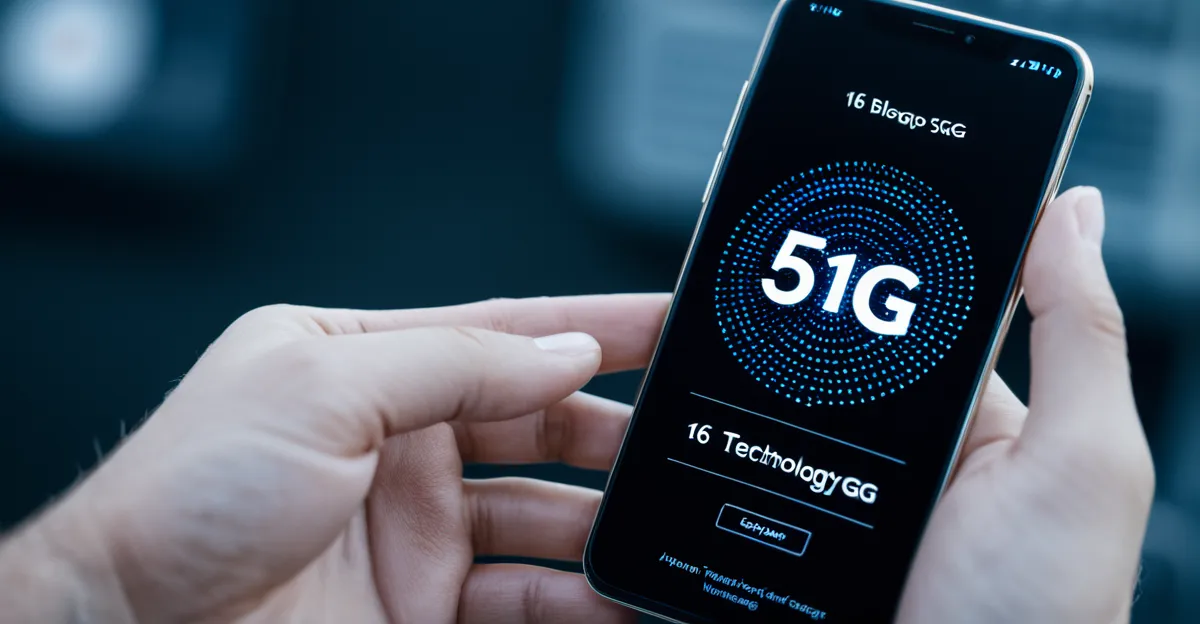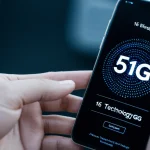Overview of 5G Technology
5G technology marks the fifth generation of mobile networks, offering a leap in wireless communication and connectivity. Unlike its predecessors, it promises significantly increased data speeds and lower latency. A noteworthy comparison between 5G and 4G networks illustrates that 5G can handle a higher capacity of devices with greater efficiency, making it an essential framework for IoT and smart technologies.
Key Features of 5G Technology
5G technology is defined by its ability to offer enhanced broadband, reduced latency, and improved reliability. Its design enables faster and more responsive services, crucial for applications requiring real-time data processing. This advancement unlocks potential for new services and industries by increasing the connectivity of devices, often without noticeable delay.
Also to discover : What impact does UK technology have on cybersecurity measures?
Comparison with 4G and Earlier Networks
Compared to 4G networks, 5G provides up to ten times the speed and drastically reduces latency from around 50 milliseconds to potentially 1 millisecond. This drastic improvement means quicker downloads, reduced buffering, and more stable connections even in densely populated environments. Earlier networks were unable to offer such a comprehensive user experience, particularly in data-intensive applications.
Current Status in the UK
The UK has made significant strides in implementing 5G technology across its regions. Major cities have seen rollouts of 5G services, albeit with varied coverage depending on infrastructure investment. The gradual implementation process ensures that the benefits of 5G will be widespread, setting a foundation for future connectivity and technological advancements. The challenges of expanding infrastructure and investment are being tackled to maximize 5G’s reach nationwide.
This might interest you : What role does UK technology play in advancing autonomous vehicles?
Impact of 5G on Healthcare
In the realm of healthcare, 5G technology is swiftly transforming traditional methods through its high-speed and low-latency capabilities. These advancements are particularly prominent in telemedicine, where real-time consultations and remote diagnoses are becoming seamless. With 5G, healthcare facilities can assure prompt interactions between patients and practitioners, accommodating quick medical assessments even from afar.
Remote patient monitoring has seen a significant boost with the advent of 5G. Equipped with enhanced connectivity, devices can now transmit data continuously without lag. This allows healthcare providers to monitor patients’ vitals almost instantaneously, tailoring treatments based on real-time health information. Consequently, chronic conditions can be managed more effectively, reducing the frequency of hospital visits and easing the burden on healthcare systems.
Telemedicine advancements facilitated by 5G extend beyond standard video calls. Virtual reality applications in therapy and rehabilitation are now possible, enabling immersive and interactive patient experiences. Moreover, robotic surgeries can benefit from precision and stability ensured by 5G networks, overcoming previous limitations posed by delays in data transmission.
Overall, the integration of 5G in healthcare promises not only improved patient outcomes but also the potential to reimagine medical practices, ultimately enhancing the efficiency and accessibility of healthcare services globally.
Transformation of Manufacturing with 5G
In the realm of manufacturing, 5G technology is poised to revolutionize production lines by fostering the concept of smart factories. This upgrade allows for seamless IoT integration, making manufacturing processes more efficient and adaptable. Enhanced connectivity within smart factories means devices and machines can communicate with unprecedented speed and reliability, optimizing operations and reducing downtime.
Role of 5G in Smart Factories
5G enables factories to deploy IoT devices that monitor and control processes in real-time. This connectivity allows machinery to interact instantaneously, adjusting to production demands and minimizing waste. By integrating sensors, monitoring equipment becomes more precise, ensuring the highest quality control standards are met.
Case Studies of Manufacturing Improvements
Numerous manufacturers have already witnessed operational improvements through 5G. For example, factory floors outfitted with 5G networks experience a significant reduction in machine malfunctions due to real-time diagnostics and predictive maintenance. Companies using 5G can respond quickly to malfunctions, avoiding costly downtime.
Impact on Supply Chain Operations
A substantial impact of 5G in manufacturing is observed in supply chain operations, which become more efficient and transparent. With 5G, companies can track shipments and inventories in real-time, allowing for efficient stock management and swift responses to demand fluctuations. This level of transparency ultimately leads to better customer satisfaction and cost savings in logistics.
Advancements in Transportation Due to 5G
The advent of 5G technology is setting the stage for significant advancements in the transportation sector. This innovation is crucial for the development of connected vehicles, which rely on extremely fast and reliable data transmission. Connected vehicles, embedded with IoT devices, can communicate with each other and traffic infrastructure, enabling features like automated driving and advanced safety systems. The speed and low latency of 5G ensure that vehicles can make real-time decisions, improving both efficiency and safety on the roads.
Smart Traffic Systems
Smart traffic management systems are becoming increasingly viable with the implementation of 5G. These systems use real-time data to optimize traffic flow, reduce congestion, and enhance commuter experience. Traffic lights, for instance, can adjust to real-time traffic conditions, minimizing wait times and emissions. This creates a more sustainable urban environment, demonstrating the transformative potential of 5G in modern cities.
Safety Improvements and Efficiency in Urban Transportation
The efficiency brought by 5G technology enhances urban transportation by reducing delays and supporting real-time communication between vehicles and infrastructure. With enhanced vehicle connectivity, issues like accidents and breakdowns can be managed swiftly. Ultimately, 5G in transportation is poised to boost not only operational efficiency but also the safety of commuters by minimizing human error and optimizing traffic patterns.
Benefits of 5G Across Industries
5G technology brings unprecedented speed and increased capacity, fundamentally transforming various industries. With up to tenfold faster data speeds than 4G, 5G ensures a seamless experience for data-heavy applications. This enhanced speed supports advancements in areas like healthcare, manufacturing, and transportation, enabling real-time data processing and instant communication.
Furthermore, 5G offers improved reliability over its predecessors, reducingsignal interference and ensuring consistent connectivity even in crowded environments. This reliability is critical for applications requiring stable connections, such as remote surgeries and automated driving systems. The combination of speed and dependability maximizes efficiency across different sectors.
Economically, the implications of adopting 5G are significant for UK industries. The rollout of 5G facilitates the emergence of new services and business models, creating job opportunities and stimulating innovation. As industries leverage the enhanced capabilities of 5G, they are better positioned to compete in a global market, thus bolstering economic growth.
Challenges and Concerns Related to 5G
Implementing 5G technology is a monumental task that presents numerous challenges, particularly concerning infrastructure costs and health considerations. The deployment of 5G requires significant investment in new equipment and the upgrading of existing infrastructure. This financial burden is formidable for both telecommunications companies and governments, impacting the pace of nationwide rollout. The high cost stems from the requirement for new antennas, towers, and the densification of existing networks, which necessitates a comprehensive and strategic approach.
Alongside financial hurdles, there are prevailing public health concerns related to 5G technology. Some public discourse suggests potential health risks associated with increased electromagnetic field exposure. Although extensive scientific research generally deems these exposures within safe limits, skepticism remains in certain communities. Addressing these concerns involves ongoing dialogue with health experts and regulatory bodies to ensure that public safety standards are upheld.
Cybersecurity risks are another significant concern with 5G, resulting from the increased connectivity and network complexity. As more devices become interconnected, the potential for cyberattacks expands, necessitating robust security measures and policies. The challenge lies in developing systems capable of defending against sophisticated threats while maintaining the openness and flexibility that 5G promises. Overcoming these challenges is crucial to realizing the full potential of 5G technology.
Future Predictions for 5G in the UK
As 5G technology continues to evolve, its impact on the UK market is anticipated to be transformative. Over the next decade, we expect substantial advancements in both capacity and applications, solidifying 5G’s role as a cornerstone of technological progress. One key trend to watch is the integration of 5G in emerging sectors, where its high speed and low latency could unlock new possibilities, such as augmented reality experiences and autonomous vehicles.
The growth and adoption of 5G across various sectors are projected to accelerate. In industries like healthcare and manufacturing, we can expect 5G to enhance operational efficiency significantly. For instance, real-time data sharing in healthcare settings will become more widespread, improving patient care and streamlining administrative processes. In manufacturing, advanced IoT integration will lead to more agile and responsive production lines.
Strategically, 5G is poised to play a critical role in the UK’s economic growth. The technology’s potential to drive innovation and efficiency positions the UK as a leader in digital transformation. Policymakers and businesses are likely to support initiatives that further 5G deployment to maintain a competitive edge. By harnessing 5G’s full potential, the UK can capitalize on opportunities presented by technological advancements, ensuring sustained economic prosperity.
With these predictions, the future of 5G in the UK looks promising, marked by technological innovation and economic revitalization on a large scale.





